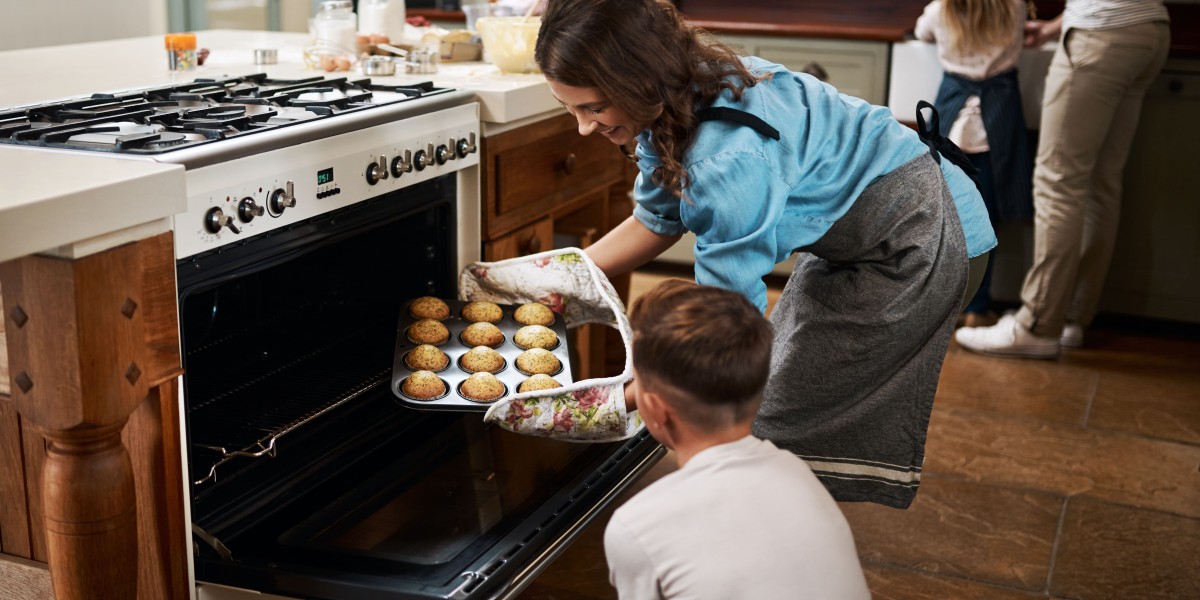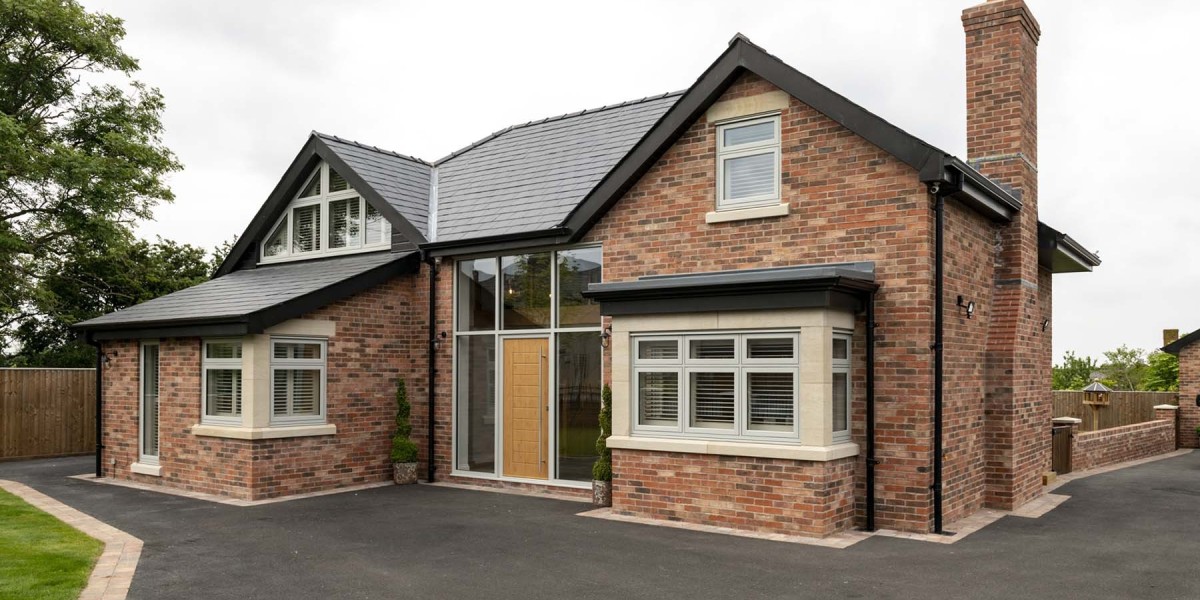The Rise of Built-In Cookers: A Modern Kitchen Essential
The kitchen has actually long been the heart of the home, a place where cooking aspirations come to life and everyday meals are crafted with care. Throughout the years, advancements in innovation and design have transformed this space, with built-in cookers becoming a frontrunner in modern-day kitchen trends. This post explores the numerous elements of built-in cookers, including their advantages, types, installation factors to consider, and popular brands.
What is a Built-In Cooker?
A built-in cooker is an appliance that is effortlessly integrated into kitchen cabinetry, offering a tidy and cohesive appearance. Unlike freestanding units, built-in cookers are typically developed to match the kitchen's aesthetic, using both functionality and style. They can can be found in various configurations, including ovens, cooktops, and wall-mounted choices.
Advantages of Built-In Cookers
Built-in cookers are becoming progressively popular for numerous factors. Here are some of the primary benefits they offer:
Aesthetic Appeal: The smooth integration of built-in cookers adds to a streamlined and modern kitchen style. They use personalization options to match the cabinets and general decoration.

Area Efficiency: Built-in cookers are created to fit comfortably within cabinets or walls, maximizing readily available kitchen area. This is especially helpful in smaller sized kitchen areas, where every inch counts.
Improved Functionality: Many built-in cookers come with sophisticated functions and technology that can enhance cooking efficiency, such as clever thermostats, self-cleaning alternatives, and customized cooking settings.
Safety Features: Many built-in models include safety functions such as automated shut-off, child locks, and cool-to-touch doors, making them safer for households with kids.
Increased Resale Value: Investing in built-in appliances can increase the value of a home, particularly if the style is complementary to the overall style of the kitchen.
| Function | Built-In Cookers | Freestanding Cookers |
|---|---|---|
| Visual Integration | High | Moderate |
| Setup Flexibility | Repaired (Requires Installation) | Portable |
| Area Efficiency | High (Optimized for Cabinets) | Variable (Some Models Bulkier) |
| Functionality | Typically Advanced/Smart | Fundamental to Mid-Range Functionality |
| Resale Value | Typically Higher | Variable/Dependent on Model |
Types of Built-In Cookers
Built-In Ovens: Available in single or double setups, built-in ovens can be positioned at eye level for convenience. They might consist of functions like convection cooking, steam choices, and numerous cooking modes.
Built-In Cooktops: These units are set up straight into the counter top and can be powered by gas, electrical energy, or induction technology. They provide a sleek look and can maximize area for additional kitchen components.
Wall Ovens: These are set up at a raised height, making them accessible and ergonomic. Many wall ovens feature sophisticated innovation such as Wi-Fi connection for remote operation.
Combination Units: Some built-in designs use a double function, combining both oven and cooktop abilities, creating a flexible cooking space.
Microwave Ovens: Built-in microwaves can be installed into kitchen cabinetry, offering fast access to reheating and cooking without using up counter area.
Benefits and drawbacks of Built-In Cookers
| Pros | Cons |
|---|---|
| Improved aesthetic appeal | Installation can be expensive and complex |
| Space-saving design | Less versatile than freestanding alternatives |
| Increased performance | Limited choices in some styles |
| Enhanced resale worth | Replacement can be complicated due to fit |
| Safety features readily available | Some built-in designs can be costlier |
Installation Considerations
When thinking about a built-in cooker, there are a couple of essential installation elements to remember:

Space Requirements: Measure your kitchen carefully to guarantee that the built-in Cooker Built in will fit easily within the planned space. Consist of allowances for ventilation and accessibility.
Electrical and Plumbing Needs: Ensure that your kitchen is geared up with the required electric outlets or gas lines. Consult a professional if required to deal with installations securely.
Regional Building Codes: Check regional guidelines regarding kitchen home appliance setups, specifically for gas models, to make sure compliance.
Professional Installation: Due to the intricacies involved, employing a professional for the installation of built-in cookers is often suggested to avoid issues down the line.
Popular Brands of Built-In Cookers
A number of brand names have developed themselves as leaders in the built-in cooker market. Here are a few notable ones:
Bosch: Known for top quality German engineering, Bosch provides a variety of sleek built-in appliances that improve any contemporary kitchen.
Wolf: A luxury brand name under Sub-Zero, Wolf is revered for its cooking efficiency and enduring sturdiness. Their built-in appliances are developed for cooking enthusiasts.
Miele: This brand is synonymous with premium appliances, offering innovative functions and elegant designs in their built-in ovens and cooktops.
KitchenAid: KitchenAid offers a variety of stylish built-in appliances known for their efficiency and easy to use features.
Electrolux: Offering a blend of type and function, Electrolux concentrates on energy-efficient, high-performance built-in cookers.
Often Asked Questions (FAQs)
1. Are built-in cookers more costly than freestanding models?
While built-in cookers can be more expensive upfront due to setup costs and design, they frequently last longer and can enhance the resale worth of a home.
2. Can I install a built-in cooker myself?
Due to the specifics of electrical and gas connections, it is recommended to hire a professional for the setup of built-in cookers to ensure security and compliance with regional codes.
3. What maintenance do built-in cookers need?
Regular cleaning and upkeep are vital for built-in cookers. This might include wiping down surface areas, cleaning vents, and regular checks of the electrical and gas connections.
4. Do built-in cookers have warranty options?
Many trusted brands use warranties that vary in regards to duration and coverage. It's advisable to check service warranty conditions during purchase.
5. Can built-in cookers work in smaller sized cooking areas?
Yes, built-in cookers are created to optimize area and can work well in smaller sized cooking areas by integrating perfectly into kitchen cabinetry.
Built-in cookers represent a marriage of functionality and design, making them an attractive choice for numerous homeowners. As kitchen design continues to progress, the pattern toward seamless combination of appliances will likely grow. For those looking to enhance both the visual and operational elements of their kitchen areas, built-in cookers are well worth thinking about. With cautious preparation, thoughtful setup, and attention to upkeep, built-in cookers can provide years of reliable service in the heart of the home.







